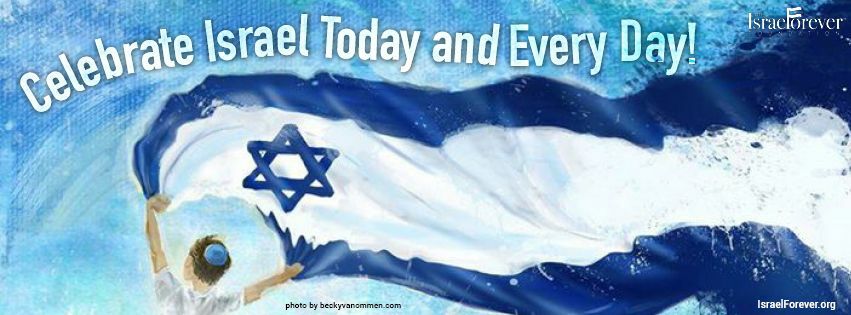Taking Account: What is Vital and What We Owe
Every year, we come upon Yom Kippur and ponder how it should be addressed by the community as a whole and by our leaders. In 2014, just after another war was forced on the citizens of Israel as 12,000 missiles rained down from Hamas, one woman spoke out with a message everyone should hear.
Listen to the whole thing. It builds; it resonates; it matters.
Listen to the whole thing. It builds; it resonates; it matters.
Excerpted sermon text:
I didn't want to give a sermon about Israel...
I live with questions of Jewish identity and texts and history, in which Israel is central to everything.
I was heartsick this summer, watching Israel once again at war. I hung on every communication from my young cousin, who was fighting with the IDF on the ground in Gaza. And I felt anguish seeing the picture of those four young Palestinian boys killed on the beach from rocket fire, wondering if the Jewish state I love had really been as careful as it possibly could have been. I hungered for moral clarity in a conflict that presented impossible choices.
Amos Oz, the great Israeli novelist, began an interview this summer with this challenge: “What would you do if your neighbor across the street sits down on the balcony, puts his little boy on his lap and starts shooting machine gun fire into your nursery? What would you do if your neighbor across the street digs a tunnel from his nursery to your nursery in order to blow up your home or in order to kidnap your family?” These were the words of a prominent founder of Israel’s peace movement, a lifelong liberal lion. No one can answer these questions with absolute moral certainty. Not any rabbi. But amidst these impossible choices, many sought clarity by making clear villains, and we watched Israel become further ostracized and demonized in the global community.
This summer Israel was fighting on several fronts: to defend its citizens, its borders, its legitimacy, and its very right to exist. Israel faces not only hostile Arab neighbors. Not only a region in turmoil, not only anti-Semites around the world eager to vilify the Jewish people. But increasingly, Israel was challenged and spurned by some of us, including some of whom I count among my friends and this congregation.
And so I knew I had no choice but to speak about Israel tonight. I needed to say how high the stakes are. Some of you will need no explanations. You were nourished with a love of Israel and can’t fathom why Jews wouldn’t feel the power and primacy of Israel in their DNA. But others of you may not feel the innate relevance of Israel in your lives. I don’t know that any one sermon can persuade you that Israel should matter to you, if it doesn’t already. But I had to try. I had to share on this Yom Kippur why Israel matters to all of us. And ultimately matters to the future of Jewish life.
In addition to our ancient historical ties to Israel as the birthplace of our religion, and the cradle of our prophetic tradition, we must remember two of the most important grounding principles that have undergirded our support for the modern State of Israel.
First: Israel was created to be a necessary haven for Jews everywhere in the world, especially after the Holocaust, and in the event of other outbreaks of anti-Semitism.
My husband Jacob grew up on stories of his German family, educated and assimilated, very much like you and me, who only reluctantly left their beloved Germany in the 1930s, their Steinway grand piano and engraved silver table settings seeming to mock how comfortable they had so recently felt. Jacob’s grandfather Rolf Buchdahl, the son of Adolf—not such a popular a name for Jewish boys after the war—was such a proud German, embracing German culture, whose music and literature he was certain was the finest in the world. But none of that patriotism mattered when the war broke out. Jacob was raised on the narrative that if it could happen in Germany, it could happen anywhere.
Now, I don’t really believe it could happen in America. But tragically, even America hardened its heart against all too many European Jews desperately trying to come to our shores during World War II. There was no country in the world that made that promise. Israel is the only nation where the right of return for Jews is guaranteed. If the State of Israel existed then, think of how different Jewish history could have been.
Throughout my childhood, whether it was for Soviet Jewry or an airlift from Ethiopia, Israel was always the place to which Jews could flee. Since its founding, Israel is the state that would take Jews in, give them a home and a job and the precious normalcy of raising a family.
Sadly, Israel as safe haven is still relevant in 2014. Who could have imagined we’d be talking about a global resurgence of anti-Semitic sentiment and violence this summer? Who could have imagined French Jews would be leaving for Israel at a rate sixty per cent higher than last year? That statistic is all the more astounding when you consider that Israel was at war. French Jews felt safer in an Israel under rocket fire than they did in France.
With experiences like these in our too-recent memories, how could we not respond to the idea of Israel as a vital refuge?
And the second reason we feel compelled to support Israel is that the country is under a constant threat of annihilation. That’s not just Jewish paranoia; it’s the certainty of Israel’s history and Israel’s current reality. Yes, Israel has peace treaties with Egypt and Jordan. Yes, the Palestinian national movement has changed over the decades. But this tiny country is still surrounded by millions who want the Jewish state obliterated.
This summer, we were brutally reminded how Israel is in danger. The kidnappings and discovery of the bodies of three teenage boys was wrenching. The rocket fire was so menacing, and the tunnels were the scariest of all. How could we not be stricken by the thought of what was being hatched underground?
We know it’s a time-tested truth that nothing binds a people more than a common enemy. And Israel has very real enemies. Hamas, whose charter blatantly calls for the destruction of the State of Israel; Hezbollah and Iran, enemies committed to Israel’s demise. Even Turkey, once a reliable friend of Israel, has become increasingly hostile.
But this time, our common enemies, and the specter of destruction did not unify all of us.
In fact, a lot of American Jews—and most especially the young—sometimes talk as though the Israeli government is the real and only problem.
Ari Shavit, the Israeli author of My Promised Land, one of the most important books on Israel in years, spoke at Central this past spring. Shavit shared his anguish that the greatest threat to Israel’s existence that is too easily overlooked is the apathy, the Israel-fatigue, and even the shame that the next generation of American Jews feel for Israel.
For most of our younger generation, the traditional narratives of Israel as a safe haven and a beleaguered country fighting for its survival do not resonate. Many of them would say that Israel is not essential to them.
They have rarely or never experienced anti-Semitism. They feel safe and at home in America, and of course they should. The Holocaust has become relegated to ancient history. And they did not live through the battles where Israel fought for its life, in ’48, ’67, or ’73. In fact, many would say that Israel appears, from their vantage point, not like the scrappy underdog fighting for its survival, but like a regional military superpower oppressing its neighbors.
But this is a very narrow view of Jewish history. And a very narrow view of Israel.
So often the only thing we talk about, read about, geshray over regarding Israel is just one thing: politics. I’m not saying we should stop talking about Israel’s very real needs for security. Or stop engaging in nuanced conversations about the troubling policies of continued settlement building in occupied territories. But we need to see Israel as more than the sum of its military choices and political positions.
I would venture a guess that nearly everyone in this room has been profoundly disappointed by an American president or our government in the last decade. Either you spent the Bush years saying, “I can’t believe this country I love is doing this,” or you spent the Obama years saying, “I can’t believe this country I love is doing that.”
Or perhaps both! Regardless, you want to see this country thrive and prosper no matter who’s leading it, no matter what mistakes are made. And you wouldn’t stand for anyone claiming America doesn’t have the right to exist just because, in a given administration, you believe its policies or decisions are misguided or even unjust. You haven’t moved to Canada.
We all know that America sometimes falls short of the magnificent ideals on which it was founded. It’s hard to believe that the words of the Declaration of Independence—that “all men are created equal”—were written by many men who owned slaves and refused to give women the right to vote. But we believe in the founding principles of this country. And whether we are in agreement with the government in power at the time or not, our relationship is not dependent on the politics and policies of the moment. Thank G–d for that.
And yet, for too many American Jews, our relationship to Israel is too contingent on the actions of whatever government happens to be in power. There is no depth to the relationship or connection to everything that Israel stands for. But just as our relationship to America would never be based solely on our feelings about Guantanamo Bay and drone strikes, our relationship with Israel can’t be based solely on our feelings about the Gaza Strip and settlements. I have strong feelings about them, and they shouldn’t be taken out of the equation. But neither should they be all of it.
If that is all we know, we will never love. And I have to say it:
I WANT YOU TO LOVE ISRAEL.
And I’m going to do everything I can to help you know the Israel I love better.
BECAUSE…
Only in Israel do we land on the runway and people on the plane cheer, cry, and kiss the ground—the ground our people has longed for and prayed about for over two thousand years.
Only in Israel does the Declaration of Independence aspire to build a world as envisioned by the prophets of Israel, promising “complete equality of… rights to all its inhabitants.”
Only in Israel would David Grossman’s novels, Naomi Shemer’s songs, and Yehuda Amichai’s poetry seamlessly weave in ancient words of Torah with the depth of the Jewish story into an Israeli culture that makes us weep, and marvel.
Only in Israel, a country of virtually no natural resources, would they invest deeply in their only true resource, their people, and have the highest number of PhD’s per capita in the world.
Only in Israel do all schoolchildren learn the Hebrew Bible in its original language, and then take field trips to the sites of King David or Samuel, and walk in kings’ and prophets’ footsteps.
Only in Israel can you unselfconsciously live in Jewish time—the city stopping on Shabbat, the streets empty of cars and full of people walking to shul. And on Sukkot, even the kosher McDonald’s is bedecked with sukkahs so you can fulfill the mitzvah with your Big Mac.
You can expect, that as your rabbi, Central will still bring in speakers and policymakers who will talk about the very real and complicated political and military issues that Israel faces. American Jews are among Israel’s most important strategic allies and we owe it to Israel and ourselves to be educated and committed to Israel’s safety and future. We owe it to ourselves to know what we’re talking about—and even to disagree, civilly and knowledgeably.
Real love does not wither when it faces imperfections. Real relationships are based on knowledge. But it’s hard to fall in love with someone who only wants to have heavy, hard conversations all the time. I want you to also know the Israel that makes me laugh. And wonder. And feel—something so deep and rooted that I can’t imagine being a Jew without it.
I wish it were easier. I wish Israel didn’t live in such a bad neighborhood. But this land, it’s vital to us. Chaim Weizmann, who became the first president of modern Israel, was lobbying the British government for the Jewish homeland. And a member of the House of Lords asked him, “Why do you Jews insist on Palestine when there are so many undeveloped countries you could settle in more conveniently?” Weizmann replied, “That is like my asking why you drove twenty miles to visit your mother last Sunday when there are so many old ladies living on your street.”
Israel is our motherland. Israel is family. Israel is the birthplace of the Jews’ greatest contributions of ethics and morals to human civilization. Israel is our safe haven. Israel is the beating heart of our people. And Israel is ours.
Od lo avda tikvateinu. We have not lost hope—that the hearts of Jews in America will turn to Israel, and the hearts of Israel to us, in mutual strength and common calling.
We have not lost hope—that Israel will forge a path to lasting peace and security with the Palestinian people and its neighbors in justice and goodwill.
We have not lost hope—that this tiny, embattled, miraculous country will write the next chapter of our remarkable Jewish story in a way that is worthy of our highest Jewish values.
We are, after all, and above all, a people of hope.





Leave a Comment on Israel Forever